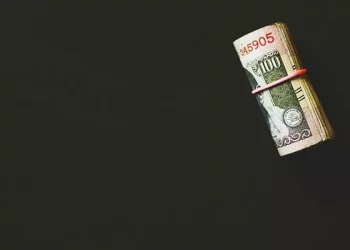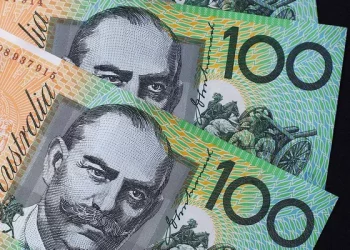When traveling internationally or conducting business across borders, understanding the exchange rate between currencies becomes essential. For example, converting 2,000 Thai Baht (THB) to U.S. Dollars (USD) requires current and accurate data to ensure transparency in transactions. Currency exchange rates fluctuate frequently due to numerous economic factors. As of the latest data, 1 Thai Baht is equivalent to approximately 0.028 to 0.030 USD, depending on market conditions and the service provider used for the exchange.
The Importance of Exchange Rates
Exchange rates play a vital role in the global economy. They affect not only travelers but also businesses, investors, and even governments. A change in the exchange rate can influence the cost of imported goods, investment returns, and the competitiveness of exports. For individuals converting 2,000 Baht to U.S. Dollars, a slight shift in the rate can mean a notable difference in the amount received. It is important to understand how these rates are determined and where to get the most favorable rate.
Factors That Influence the Exchange Rate
Several factors impact the exchange rate between the Thai Baht and the U.S. Dollar:
- Interest Rates: Countries with higher interest rates tend to attract foreign capital, increasing the demand for their currency.
- Economic Indicators: Strong economic performance can lead to a stronger currency.
- Political Stability: Investors prefer stable political environments, which can strengthen a country’s currency.
- Inflation Rates: Low inflation often correlates with a stable or appreciating currency.
- Market Speculation: Traders and investors speculating on future movements can cause short-term fluctuations.
Understanding these influences can help individuals make better decisions when converting currencies.
How to Convert 2,000 Baht to U.S. Dollars
To determine how much $2,000 Baht is in U.S. Dollars, follow these steps:
- Find the Current Exchange Rate: Check a reliable financial source or currency converter online.
- Apply the Rate: Multiply the amount in Baht by the current USD conversion rate.
For example, if the current rate is 0.029 USD per 1 Baht:
2,000 Baht×0.029=58 USD
This means that 2,000 Thai Baht would be approximately 58 U.S. Dollars at that rate. Keep in mind that the actual amount received may differ due to service fees.
Where to Exchange Thai Baht to U.S. Dollars
You can convert Thai Baht to U.S. Dollars through multiple channels:
- Banks: Often provide secure but sometimes less competitive rates.
- Currency Exchange Services: May offer better rates but require comparison shopping.
- ATMs: Convenient but may charge international transaction fees.
- Online Currency Converters: Useful for checking real-time rates but not for actual exchanges.
Each option has its pros and cons. It’s advisable to research ahead and choose the service with the best balance of rate and fee.
Exchange Rate Trends and Historical Data
Examining past exchange rate data can help anticipate future movements. Historically, the Thai Baht has ranged between 0.027 and 0.032 USD. Seasonal fluctuations, political events, and economic developments all contribute to changes in this range. Tracking these trends over time can provide insights into the best times for currency exchange.
Exchange Rate Fees and Hidden Costs
When converting currency, be aware of the fees involved. These may include:
- Service Fees: Flat or percentage-based fees added by the service provider.
- Hidden Margins: Differences between the market rate and the rate offered.
- ATM and Bank Fees: Additional charges for using foreign ATMs or credit cards.
Always ask for a complete fee breakdown before completing a transaction. Even small percentages can significantly affect the amount received.
Strategies for Getting the Best Exchange Rate
To maximize your return when converting 2,000 Baht to USD, consider the following strategies:
- Compare Rates: Use multiple sources to find the best rate.
- Avoid Airports: Airport exchange booths often have the worst rates.
- Use Local Banks: Thai banks may offer better rates than foreign institutions.
- Plan Ahead: Exchange when rates are favorable, not last minute.
- Consider Online Services: Platforms like Wise or Revolut offer competitive rates with transparent fees.
Implementing these strategies can help you receive more value for your money.
Impact of Currency Exchange on Travelers
For tourists, understanding the exchange rate is crucial to managing travel expenses. Exchanging 2,000 Baht could mean the difference between a nice meal or a budget-friendly option. Smart currency exchange practices can significantly improve your travel experience by stretching your budget further.
Exchange Rate and International Business
Businesses that operate globally must closely monitor exchange rates. A shift in the Baht/USD rate can affect import costs, profit margins, and pricing strategies. For instance, a stronger Baht could make Thai exports more expensive and less competitive internationally. On the flip side, a weaker Baht could boost exports but increase the cost of importing goods.
Tools for Monitoring Currency Exchange Rates
Various tools and platforms are available for tracking real-time currency exchange rates:
- XE: Offers real-time data and currency charts.
- OANDA: Provides historical data and exchange rate APIs.
- Google Finance: Convenient for quick checks.
- Forex Apps: Apps like ForexTime and Currency Converter Plus.
These tools help users stay updated and make informed decisions on currency conversions.
Practical Example: Travel Budgeting with Baht to USD Conversion
Let’s say you are planning a trip from Thailand to the U.S. and want to bring 2,000 Baht in spending money. If the exchange rate is 0.030 USD per Baht, you would receive:
2,000 Baht×0.030=60 USD
Now consider expenses in the U.S.: meals, transportation, and small purchases. Planning with the converted amount in mind allows for better financial management and fewer surprises abroad.
Currency Exchange Policies and Regulations
Every country has specific regulations concerning currency exchange. In Thailand, there are limits on the amount of Baht that can be taken out of the country. Similarly, the U.S. may require declarations for large sums of currency. Understanding these regulations ensures legal compliance and smooth transactions during travel or business dealings.
Economic Outlook for Thai Baht and USD
The future of the exchange rate between Thai Baht and the U.S. Dollar depends on both countries’ economic performance. Thailand’s tourism-driven economy and U.S. monetary policies are key factors. If the U.S. raises interest rates while Thailand maintains or lowers theirs, the Dollar may strengthen, lowering the amount of USD received from 2,000 Baht. Economic forecasts and monetary policies should be considered when planning large currency exchanges.
Currency Exchange Myths and Misconceptions
Several myths surround currency exchange:
Myth: All exchange services offer similar rates.
Truth: Rates can vary widely between providers.
Myth: Online converters show the amount you’ll receive.
Truth: They often exclude fees and margins.
Myth: Airports offer competitive rates.
Truth: Airport kiosks usually charge higher margins.
Understanding the facts helps avoid costly mistakes.
Risk Management in Currency Exchange
Fluctuations in exchange rates present financial risks. Strategies to manage this risk include:
- Hedging: Using financial instruments to lock in rates.
- Diversification: Spreading funds across different currencies.
- Setting Limits: Establishing budget limits based on current rates.
Risk management is essential, especially for businesses and investors dealing with large sums.
Common Mistakes When Converting Baht to Dollars
Avoid these common errors when converting Baht to Dollars:
- Exchanging money without comparing rates.
- Ignoring transaction fees.
- Waiting until the last minute.
- Relying solely on airport services.
Being proactive and informed can save money and avoid inconvenience.
Conclusion
Converting 2,000 Baht to U.S. Dollars involves more than a simple calculation. It requires an understanding of exchange rates, market influences, fees, and strategies for optimizing the conversion. Whether you’re a traveler, student, or businessperson, informed decisions can make a meaningful difference in the amount received and the value of your money. Stay updated, plan ahead, and use reputable sources to make the most of your currency exchange.
Related Topics:

























